Search Results for Tag: Oil
Arctic hot topic in icy Tromso
It’s standing room only for anyone who came a bit late to the opening of Arctic Frontiers this morning. This event has become huge. The organisers say there will be around a thousand participants and plenty of journalists. When I first came here six years ago, the number of journalists was minimal. Now the Arctic has moved up to the top of the international agenda because of climate change and easier access.
Politicians, scientists, diplomats, think tanks, participants from all round the globe have made the trip to Tromso in the Norwegian Arctic for what has become one of the major events relating to the Arctic.
The Norwegian Fisheries Minister was speaking this morning, the Foreign Minister of Iceland, the Chair of the Arctic Council Senior Officials group Canada’s Patrick Borbey and representatives from the USA and Russia. The UK, Japan and Italy have also been on stage – yes, the Arctic is clearly of relevance to the whole planet.
I will go into more detail later, but for now it must suffice to say they are all stressing their interest in Arctic development while (in theory?) protecting the environment and the human rights and traditional lifestyles of the indigenous peoples at home in this still remote and cold region at the top of the planet. Iceland’s Foreign Minister Gunnar Bragi Sveinsson told me he did not fear commercial development could be outpacing environmental protection. More from that interesting interview another time.
The Russian “Ambassador at Large” for the Arctic Anton Vasilev talked a lot about Russia’s interest in peaceful development and keeping military conflict out of the Arctic. Some of the participants were discussing at lunch how this fits the upsurge in military activity up there and the planting of the polar flag expedition, with both Russia and Canada claiming sovereignty.
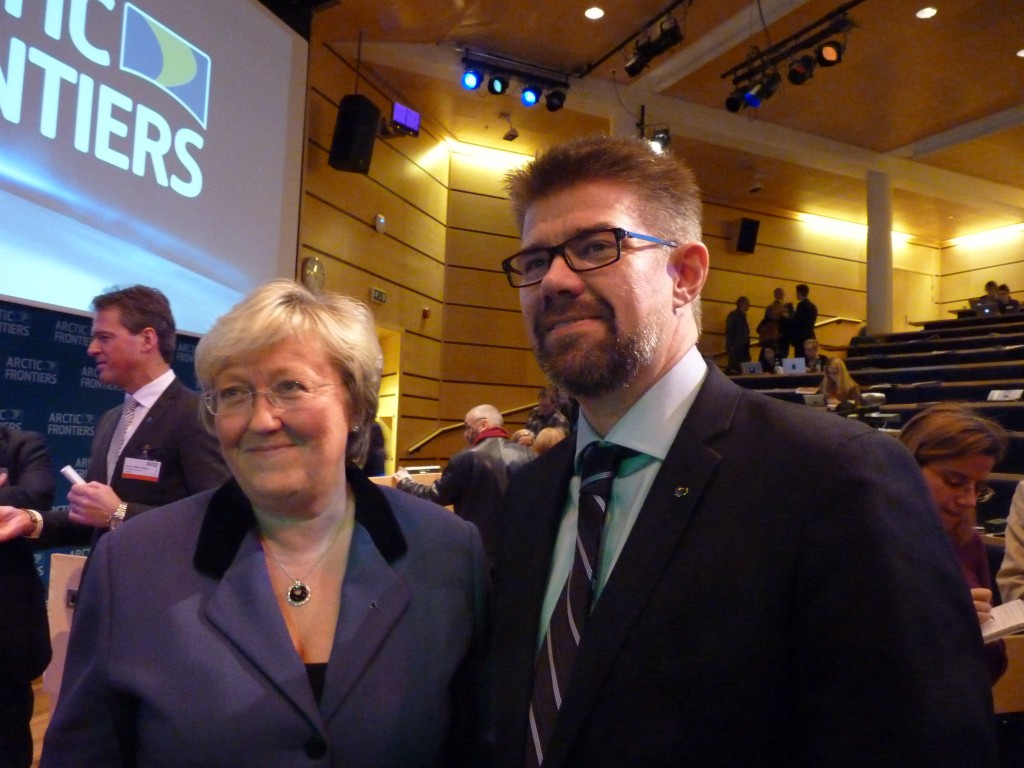
Norwegian Fisheries Minister Elisabeth Aspaker and Iceland’s Foreign Minister Gunnar Bragi Sveinsson in Tromso
This afternoon Statoil and other players are talking about oil and gas development. An interesting subject. Forgive me if I stop here to listen on. The debate is livening up with a question by a Sami participant to the Director General of the Norwegian Shipowners’ Association Sturla Henriksen. She’s asking (and she’s not alone) whether it wouldn’t be better to invest in new technologies and find ways of reducing emissions to halt the climate change which is causing problems for so many indigenous people in the Arctic. He says he respects indigenous traditions, but stresses shorter shipping routes for instance would benefit wider society in general.
More this evening! And tweets in between @iceblogger
Lanterns out for Arctic protesters
I have just come back from Bonn, where Greenpeace supporters joined in their own version of the traditional lantern processions which take place here at this time. Children and parents carry home made lanterns to mark St.Martin’s day, in memory of the saint who cut his cloak in half to give warmth to a beggar. In the Greenpeace marches held across Germany today, the marchers were swinging their lanterns in an appeal for the release of the Arctic 30, the crew of the Arctic Sunrise still under arrest in Russia. The procession in Bonn was heading for the Russian consulate here. It was a well timed event, marking two months of imprisonment for the peaceful protesters and the UN climate conference in Warsaw at the halfway mark.
Philippines, Warsaw, Arctic – join the dots
I have very mixed feelings as the UN climate conference gets underway in Warsaw just as the Philippines are devastated by what seems to have been the worst storm ever. The experts tell us climate change is extremely likely to be increasing the severity of extreme weather events. It is not hard to see the possibility of a link. And where does the Arctic come in? Well, the only Arctic headlines at the moment would seem to be the ongoing saga of the Greenpeace activists still under arrest in Russia after the protest at the Prirazlomnaya Arctic oil rig. Connection clear?
Amongst the mixed bag of emotions I am currently shuffling are horror at the extent of the storm devastation in the Philippines, intense sympathy with the victims, helplessness in the face of the huge force of typhoon Haiyan. Then comes deep frustration, verging on anger at the failure of the world’s big emitters so far to take action to reduce emissions and avert what the world’s scientists and the UN tell us will be catastrophic climate change, if we don’t keep to the two degree target. Add to this my complete failure to understand the continuing rush to get oil from the Arctic – regardless of the fact that this would, in turn, contribute further to the vicious circle of climate change.
Some 13% of the world’s remaining undiscovered oil reserves, 30% of its gas are estimated to be in the Arctic. The higher the price of energy, the faster the ice melts, the greater the international interest in a region becoming increasingly accessible as the world continues to warm. At the same time concern is growing amongst those who see development as a threat to the sensitive environment of the High North and the lifestyles of indigenous peoples there – and an increasing risk for the global climate: the burning of more fossil fuels would further intensify global change by producing more CO2 emissions. According to the World Energy Outlook 2012, two thirds of our known fossil fuel reserves would have to remain in the earth, if the goal of limiting temperature rise to two degrees Celsius and averting catastrophic climate change is to be reached.
The harsh nature of Russia’s reaction to the Greenpeace protest at the Prirazlomnaya oil rig in the Arctic demonstrates how important the region has become for the government in Moscow. While Greenpeace has stepped up its campaign to stop oil drilling in the Arctic and have the activists and ship released, the business of Arctic exploration and development just “carries on regardless”. Rosneft, Statoil, Italy’s ENI, Exxon Mobil, Shell… are all active in the Arctic. China and India are also keen. The UK recently unveiled plans to become a hub for Arctic oil exploration. Meanwhile, Greenpeace, is campaigning for the area around the North Pole to be declared a sanctuary and protected from drilling or other industrial exploitation. In addition to environmental campaign groups, the “Fossil Free Campaign” initiated by US American Bill Mc Kibben is gaining influence, trying to persuade companies and institutions to withdraw investments from fossil fuel-related enterprises. Perhaps that will be the way to bring about a change of heart?
Returning to the UN climate talks in Warsaw, my mixed bag of emotions unfortunately does not contain a lot of optimism at the moment. Maybe just a sliver of hope that all is not yet lost. But looking at host country Poland’s record as a coal country and recent statements by its political leaders insisting this would remain so, and bearing in mind that the country has consistently blocked the EU from adopting stricter climate goals (which, admittedly, appears to suit many other member states), it is hard to imagine this conference bringing much in the way of progress. While top emitter China is paying more attention to its environment and climate policies, the country’s rejection of international binding targets makes considerable progress unlikely.
It would be wrong to use the typhoon disaster in the Philippines just to attract more attention to the climate conference in Poland. Clearly getting international aid out to the region has to have top priority. But there is surely a moral imperative to act upon the warnings of our scientists that business as usual is extremely likely to increase the severity of storm and flood events, which hurt the needy worst of all? And would that not have to include the realization that burning fossil fuels is helping to melt the Arctic twice as fast as the rest of the planet – with negative effects not only on the people and ecosystems in the region, but – through feedback effects, sea level rise, increasing ocean acidity etc – on the regulation of the world climate? And thus, that investing in renewable energies and the transition to a green economy makes more sense than Arctic oil exploration?
Greenpeace: Pirates, Hooligans – what next?
If it didn’t involve thirty committed conservationists being imprisoned and intimidated, I might be inclined to see the Russian authorities’ behaviour as something of a farce. Russia has now dropped allegations of piracy, but accused the activists of hooliganism, which still carries a long jail sentence. Pirates? Hooligans? What will they come up with next in their effort to keep the crew of the Arctic Sunrise in jail and hammer home the message that Russia takes its Arctic interests very seriously? The absurdity of the charges against protesters on behalf of an organisation famous for its often spectacular but always unarmed and peaceful demonstrations in the cause of environmental protection tells us a lot about Russia’s attitude towards the Arctic. “Russia takes on Greenpeace – and stakes its claim to the Arctic” is the headline of an article by Simon Shuster for Time World , which suggests Greenpeace met with the disproportionately harsh response because the Arctic oil rig protest came at a time when Russia was asserting its military presence in the Arctic – against a background of growing economic interest. Moscow has opened its first permanent military base in the Arctic since the fall of the Soviet Union. The Greenpeace stunt “gave Russia just the opportunity it needed to underscore the message of Admiral Kololyov (commander of Russia’s northern fleet): Do not tread on the Russian north”, Shuster writes. Indeed.
Shuster quotes Vladimir Chuprov, head of Greenpeace Russia, as admitting the timing of the protest “may have been inopportune”. Greenpeace chief Kumi Naidoo, who was personally involved in a similar protest last year, has stressed the organisation did not expect such a harsh response.There are those who criticize Greenpeace for staging the protest. Greenpeace critic Mika Mered, CEO of Polaris Consulting, writes in a commentary for the Arctic Journal Moscow’s reaction was “perfectly predictable”. Whether it was predictable or not – the treatment of the activists is drawing massive attention to what is happening in the High North. The race is in full swing for access to the Arctic’s resources. Research into the environmental impacts of oil and gas drilling and transport on the fragile Arctic eco-system and the development of technology to cope with a possible oil spill in icy waters are struggling to keep pace with the rapidity of commercial development. The Russian reaction to the Greenpeace protest has drawn widespread media and public attention to the rapidly growing international economic and political interest in the Arctic. More than any scaling of an oil rig alone could ever have done. And in the run-up to the next round of UN climate talks in Poland next month, let us not forget that it is climate change, caused to a large extent by the burning of fossil fuels, that is making the race for Arctic oil and gas possible.(No wonder UN Climate Chief Christina Figueras was reduced to tears by the lack of inaction on climate the other day).
Meanwhile, on a more positive note, a survey conducted by the Kremlin-backed Public Opinion Foundation on October 13th showed that 69 percent of Russians favour making the Arctic region a neutral zone – outside the control of sovereign states. See Moscow Times.
Also worth reading: “High North or High Tension”by retired US Navy Admiral James Stavridis in Foreign Policy.com. If we want to keep the peace in the Arctic, he says, “we have some work to do”.
Arctic Council disappoints Greenpeace,WWF
Environment ngos have expressed disappointment at the outcome of the Arctic Council meeting in Kiruna on May 15th. Too little action and too slow, seems to be the consensus.
Alexander Shestakov, Director of WWF’s Global Arctic Programme said: “We are disappointed that the Council is not moving faster to address such urgent issues as preventing oil spills, and reducing the impacts of regional and global climate change.” Shestakov says the issues have been placed on the “back burner” for two years, and “the pace of change in the Arctic does not allow for a two year time-out.”
Greenpeace International senior policy advisor Ruth Davis said: “Throughout this meeting, the evidence from scientists and Indigenous Peoples has highlighted the devastating impacts of our fossil fuel addiction on the Arctic. Yet the Council seems in the thrall of business interests wishing to extract more oil and gas, whatever the costs to local people, wildlife and the future health of the planet”.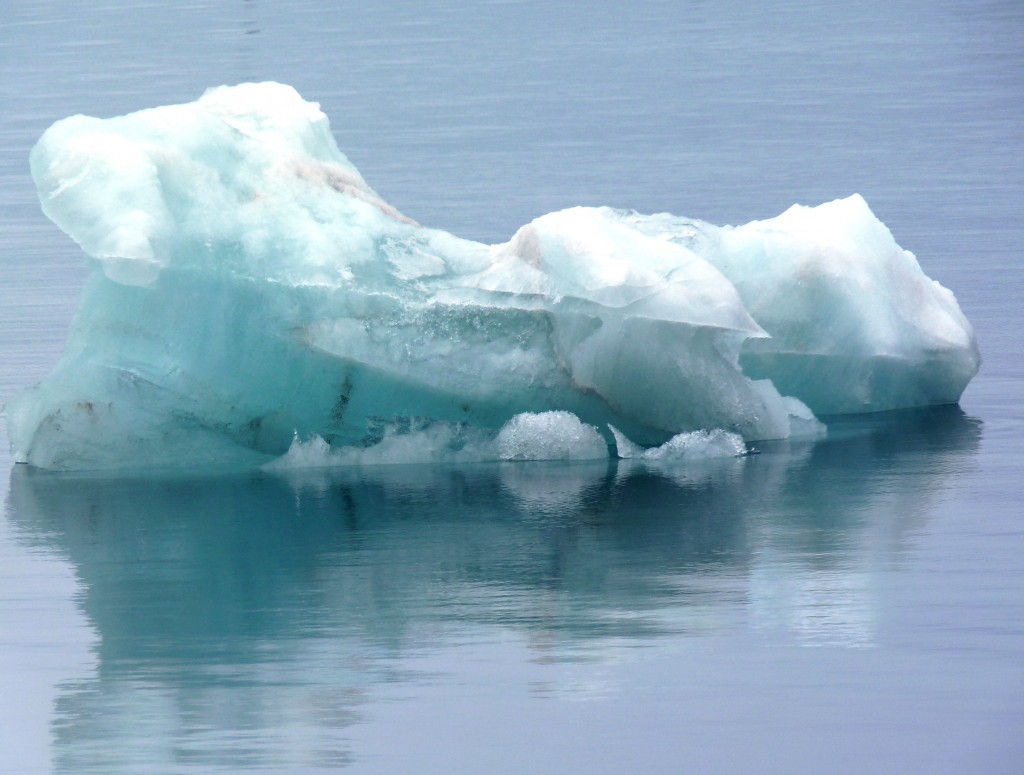
- Endangered species
Oil spill response
An oil spill response agreement was officially signed at the Kiruna meeting. WWF has official observer status and was involved in drafting the agreement. The organisation says it “will be watching to ensure that the agreement is effectively implemented”.
Greenpeace (whose request for observer status was turned down at the meeting) is highly critical of the “Cooperation on Marine Oil Pollution Preparedness and Response in the Arctic Agreement”, signed in Kiruna. Greenpeace says “it includes no specific practical minimum standards that governments must adhere to, and has no provisions to hold companies liable for the full costs and damages of a spill should one occur”. Greenpeace had leaked the draft document back in February, saying it was “disappointingly weak”.
Black carbon
The other key issue environmentalists would like to have seen progress on is black carbon or soot. WWF says Russia blocked negotiations on an agreement to tackle black carbon, which is produced by burning diesel and other fuels and is blamed for increasing the melting of Arctic ice and snow.
Greenpeace sees a wide gap between the “firm recommendations from its (Arctic Council’s) own scientists based on the Council-commissioned reports on ocean acidification and the impact of climate change on biodiversity”, and the “lack of any meaningful action”. That gap between evidence and recommendations from scientists and real political action, it seems to me, becomes even clearer looking at the wider cause of climate change in the Arctic and around the globe – human-made emissions of greenhouse gases. Without rapid action from the main emitters (one is a member of the Arctic Council, another has just been given observer status), it seems more than likely the Arctic as we know it will not exist for much longer. As I have written here before – “you can’t have your ice and melt it“. Can you?



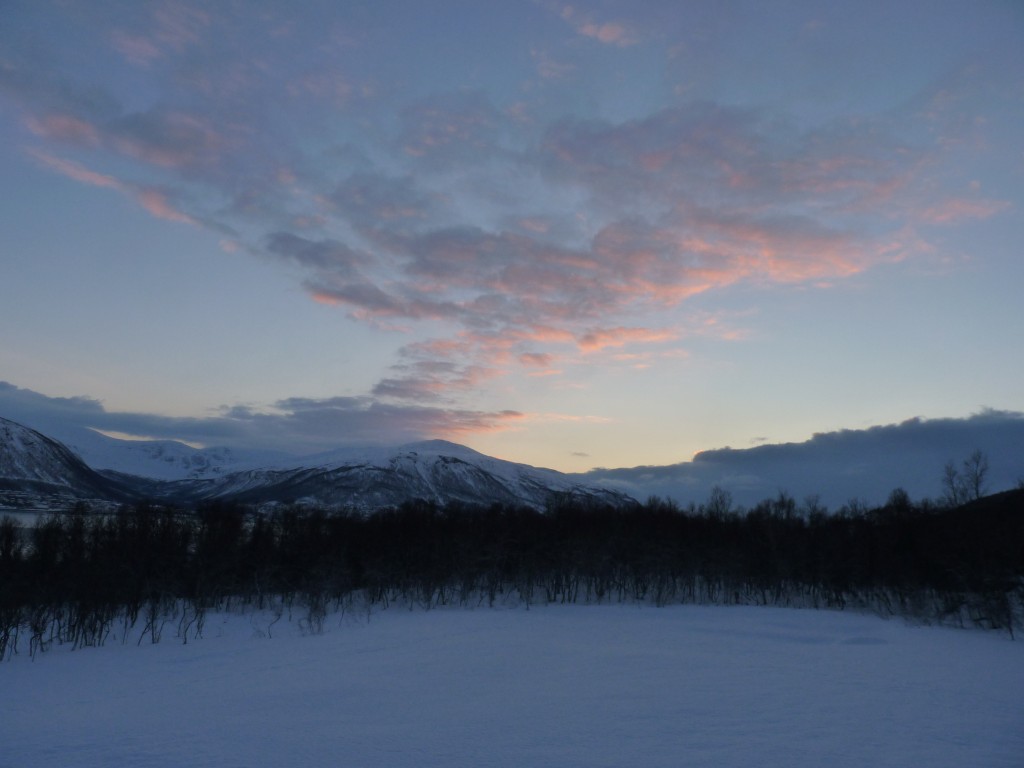
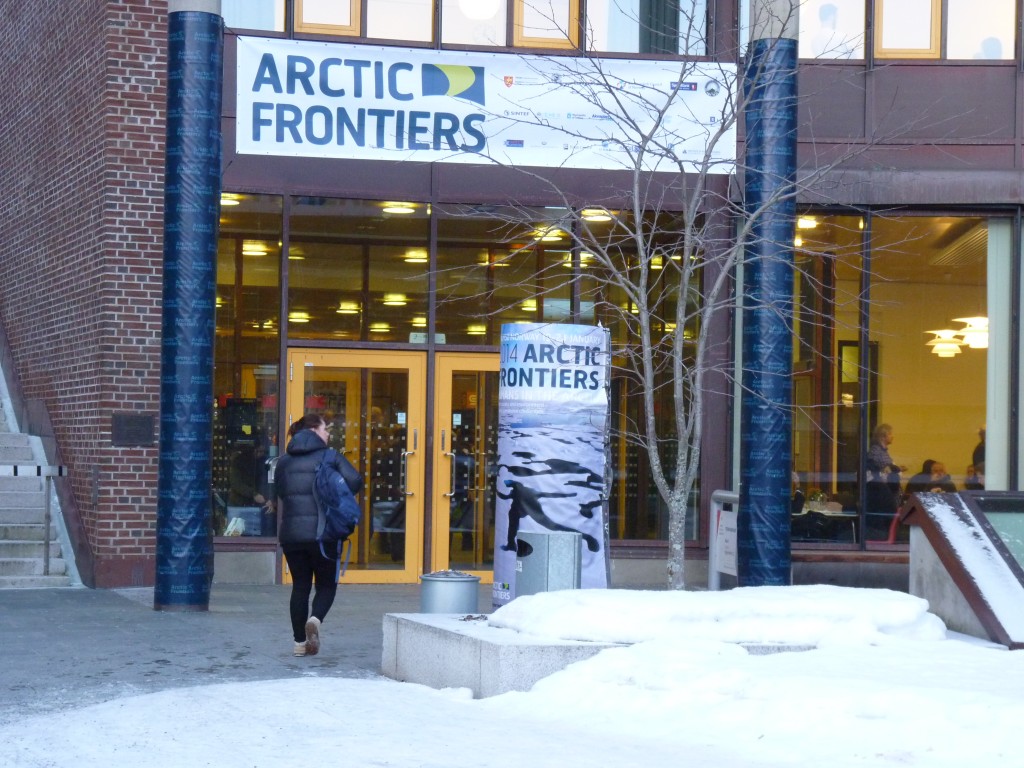


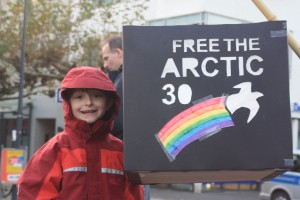


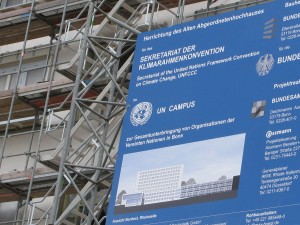
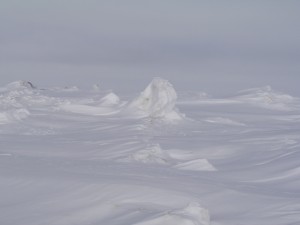
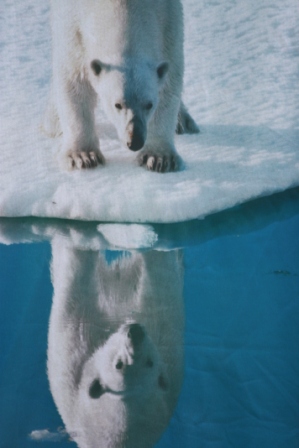

















Feedback